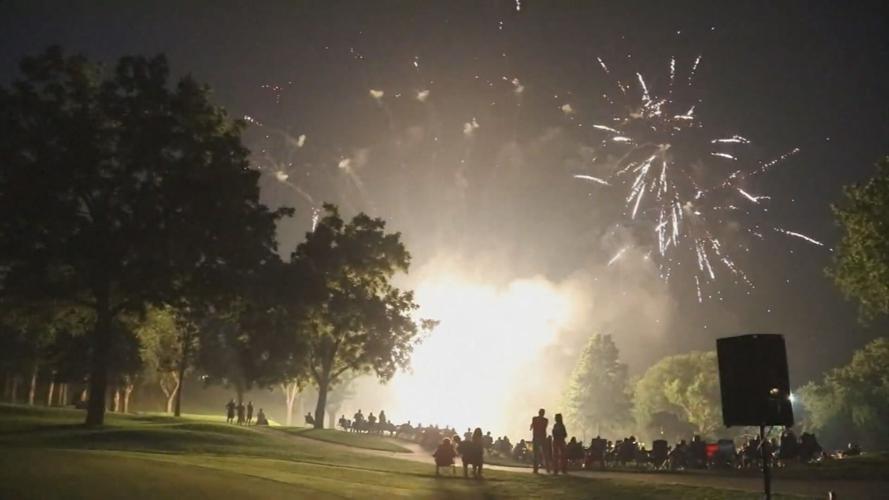PADUCAH — Fireworks are used to celebrated United States' independence on the Fourth of July.
However, fireworks can lead to nightmares and bad experiences for some who’ve served the country we’re celebrating.
Veterans with post-traumatic stress disorder, or PTSD, can be more sensitive to the celebration because of the loud sounds fireworks produce.

"A bad memory or a bad experience or a bad night, loss of sleep, maybe a nightmare or maybe something even worse," said Robert Worden, a veteran with Disabled American Veterans.
To help your veteran neighbors, be kind and considerate.
One veteran and expert with Disabled American Veterans tells us different veterans come back from war with unique experiences, some from combat and others from being near combat.
Veterans with PTSD may experience fear and anxiety because of the sounds.
"A bad memory or a bad experience or a bad night, loss of sleep, maybe a nightmare or maybe something even worse," said Robert Worden, a veteran with Disabled American Veterans.
Worden is a Vietnam War veteran. He has his own triggers and makes sure he sets the proper boundaries so he doesn't get affected by other peoples' possibly harmful decisions.
"I've learned to stay away from some people, you know, exhibiting those, or do not walk into a situation where I know it's going to happen and for those that the sound or the sight," said Worden.

Veteran Robert Worden says each veteran's experience is unique to him or her. While some vets come out of war psychologically untouched, other service members aren't as fortunate.
He says each veteran's experience is unique to him or her.
While some vets come out of war psychologically untouched, other service members aren't as fortunate.
"We don't know what they experienced that night," said Worden. "So a particular night when, when the flares were up and shells are coming in, was everybody OK? Did everybody walk out alive, was somebody injured, was somebody killed? All of that comes back fresh to this veteran, and they re-experience what they're associating with those sights and sounds."
For the Fourth of July holiday, veterans with PTSD need to look out for themselves. But neighbors need to be aware, too.

For the Fourth of July holiday, veterans with PTSD need to look out for themselves. But neighbors need to be aware, too.
The U.S. Department of Veterans Affairs says the number of veterans with PTSD differs by the war.
For instance, for Operation Iraqi Freedom and Enduring Freedom, an estimated 11 to 20 out of every 100 veterans have PTSD.
Additionally, about 12 out of every 100 Gulf War veterans experience PTSD in a given year.
The department also says several factors of war can result in an already stressful situation for those with PTSD.
Those include what the veteran did in the war, the politics around the war, where the war is fought and the type of enemy faced.




















